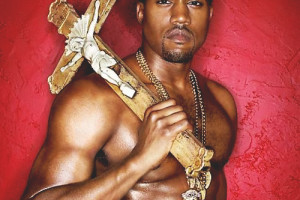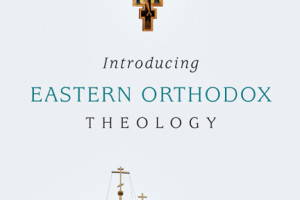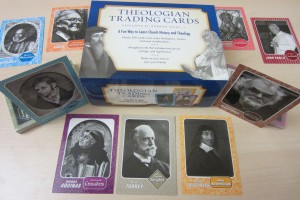If you live in Colorado, you will likely hear a news or sports story about Denver Bronco quarterback Tim Tebow at least once a day. However, when the Wall Street Journal Weekend dedicated two pages to Tebow, I knew it was time for pastors to start blogging.
Tebow came to Denver in the 2009 draft, simultaneously heralded and maligned. He didn’t see much on-field action in his first seasons. The few times he played at the QB position, he ran rather than passed the ball. When the coach who drafted Tebow was fired (Josh McDaniels) and the new coach came (John Fox), Tebow may have been designated the number two QB, but no one was saying and no one was sure.
Then, as the 2011 season quickly unraveled with consistent losses behind starting QB Kyle Orton, some very frustrated and wealthy fans hired a digital billboard sign near Mile High Stadium to plead with Fox to play Tebow. It was a media circus for a while and one got the sense that the coach decided to play Tebow, not because he could win games, but to let him fail and show the Denver fans all that was wrong with “Timmy.”
Now, after after being one win from the playoffs, even John Elway has become a Tebow fan.
During these six weeks there has been debate about Tebow’s playing skills and faith. People on national TV debate Tebow’s “Tebowing.” One lawyer in a debate about displays of religious fervor in public was incensed that Tebow would take a knee at the end of a game in thanks to God and asked “Why should we be subjected to another person’s religious preference?” Mind you, she wasn’t actually on the sidelines or in the stands; she saw it on national television. I’d say the responsibility for “subjecting” viewers to a religious display lay with the director who called the camera shots.
Sports analysts debate Tebow’s skills while at the same time debate whether or not God cares about a football game. Most seem to share the same theological commitment: “God has more important matters to worry about.” That’s how the NFL does theology.
Why has Tim Tebow created such controversy in the sports world? Patton Dodd of the WSJ gave several reasons. Dodd points out that many athletes have claimed God’s help in their games. “Most sports fans seem to think that such religious talk doesn’t really affect how the games are played,” writes Dodd. “So what if Adrian Gonzalez of the Boston Red Sox has a Bible verse inscribed on his bat? Fine – whatever helps him to hit the long ball.” That’s all the secular fan cares about.
Dodd did his homework for the article. He pointed out how religion and sports have intermingled in the history of American culture. He notes that both basketball and volleyball were “invented by men involved with chapters of the Young Men’s Christian Association in Massachusetts,” when it was an organization for Christian young men. He tells about coach Amos Alonzo Stagg (1862-1965) who “created the batting cage for baseball, five-man teams for basketball and several standard aspects of football, from the man in motion, lateral pass and Statue of Liberty play to helmets, tackling dummies and names on uniforms.” Stagg and his colleagues “combined faith with sports and competition because they believed that God wanted people to live healthy, vigorous lives. They believed that sports could help to make people good and thereby bring them closer to what God intended for them.”
Whether or not you believe that will probably color your thinking about the movies Facing the Giants orThe Blind Side, or the role model of leadership by Tony Dungy or the reason for Josh Hamilton’s revived career with the Texas Rangers. Lots of lessons learned on the playing fields there!
The heart of the matter, according to Dodd, is that Tebow “drive[s] many of his critics crazy, not so much [because of] his evangelical faith itself but the equanimity and generosity that his faith inspires in him.” It is against the American sport athlete’s culture – professional or amateur – to really mean it when an athlete says that “football isn’t that important to him, that he cares more about transcendent things.” Did you know that Tebow used his football success at the University of Florida to raise $340,000 for charity in his senior year? He influenced the culture of the campus toward charitable deeds and giving; “volunteering became fashionable.”
Did you know that while attending a gala at Walt Disney World Resort, Tebow met a 20-year-old college football fan named Kelly Faughnan, a brain-tumor victim who suffered a hearing loss and visible tremors? She was spotted wearing a jersey that said “I love Timmy.” Someone introduced the two of them and, true to his nature, Tebow invited the young woman to accompany him as his date to a prestigious college football awards ceremony in Lake Buena Vista the next night. She agreed “and the scene of Mr. Tebow escorting the trembling young woman down the red carpet led much of the reporting about the event.”
Does God care about football? It depends on how you use the word “care.” I doubt He cares about the outcome, because He already knows the end from the beginning (Isa 46:10). However, God does care about His creation. It is clear from Scripture that God is in charge of everything he created. The universe exists because of His sustaining care (Genesis 1-3; Heb 1:3). He cares about every aspect of His creation (Job 38-39) and especially of the people He has created. God is not opposed to recreational sports; after all He created the Leviathan to “sport” in the oceans (Ps 104:26). Every living creature is dependent on God giving it the next breath. If he does not, it dies (Ps 104:29b)! God takes note of the world-wide inventory of sparrows and the individual inventory of the hairs of our heads (Matt 10:29-31). Furthermore, God’s care is very personal. He really cares about His children. So much so, that God has a standing invitation open to His people to bring all their concerns to Him, precisely “because He cares for you” (1 Peter 5:7).
Like many of us, Tebow has many concerns and he brings them to God. But the thing that drives his competitive spirit isn’t the win-loss column or personal stats. It is kids suffering in the “darkest days of their lives.” Into that darkness, Tebow believes he can bring “some sunshine.”
When I heard Tebow say that during an interview on KOA in Denver, I had an immediate flashback to a scramble during the Broncos’ game with the MN Vikings. Tebow was scrambling outside the pocket, extending a play to get off a pass downfield. Chasing him were a bunch of purple jerseys. One defensive back nearly caught up with Tebow until he met with a strong stiff-arm that face-planted him into the turf. Tebow plays hard so that he can bless kids going through “dark days.” Tebow uses success (or failure) on the football field so he can do two things. First, so that he can say at the beginning of every interview, “First and foremost, I have to thank my Lord and Savior, Jesus Christ and my teammates.” (This reminds me of another famous and nationally known athlete, Eric Liddle who honored God during his athletic career. He ran fast because God gave him that ability and said that he could “feel the pleasure of God” when he ran). Second, so Tebow can invite the Kelly Faughnans of the world to enjoy a “bright spot of sunshine” to lighten the dark days of her maladies.
Sounds like what humble servants do when bringing a cold cup of water to one of Jesus’ creatures.
_______________________________________________________________________
Bob and Nita have been married for 34 years and have two children and four grandchildren. Currently serving as pastor of Faith Baptist Church (Parker, CO). Recently received a Doctor of Ministry degree in Biblical Spirituality from the Southern Baptist Theological Seminary (Louisville, KY). Hobbies: likes theology, camping, traveling and hanging out with the family — especially those grandchildren. (If I knew how much fun they are, we would have had them first!)





2 Comments
Leave your reply.